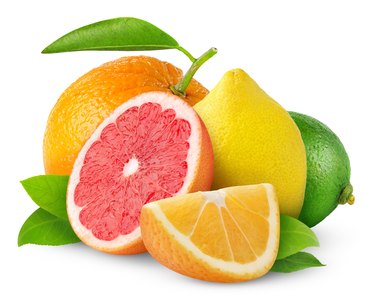
Citric acid received its name because it first was discovered in citrus fruits such as lemons, oranges and limes. This acid gives these fruits their tart taste. Citric acid is used in several methods to clean metals.
Metal Corrosion
Video of the Day
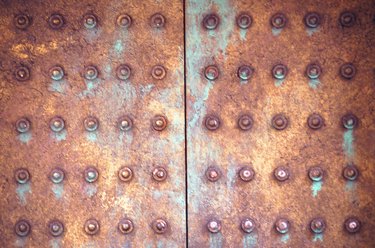
Strong acids corrode metals rapidly. Strong acids react by oxidizing a metal, changing a pure elemental metal into a metal oxide. Adding strong acid to elemental iron will react to produce iron oxides or rust. Adding strong acid to nickel creates nickel oxide, a greenish blue crust that appears on coins left outside in the rain. Precious metals, such as gold and silver, resist oxidation reactions and require a strong acid to convert them to their oxide forms.
Video of the Day
Rust Removal
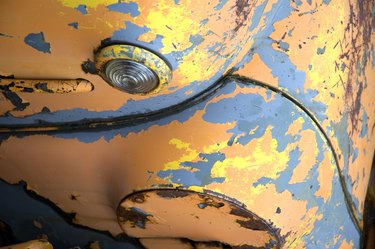
Rust removal is one use of citric acid. Since citric acid is a weaker organic acid, it does not corrode iron rapidly. Over-the-counter solutions of citric acid are generally offered at low concentrations, so they are more safe. Dipping a piece of rusty iron into the citric acid solution starts the reaction. The citric acid chelates the iron oxide, leaving a clean piece of iron and a solid chelate that can be removed easily.
Effects of Hard Water
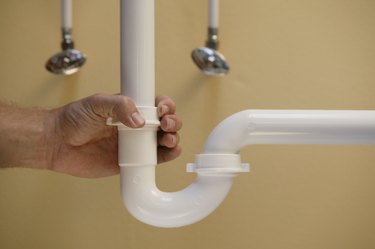
Cleaning out drains, sinks and toilets is also possible with citric acid. Hard water contains other metals such as calcium and magnesium. These metals may be introduced by unfiltered tap water, as well as other household products. Metal pollution creates oxide crusts, stains and discolorations.
Buffering the Acid
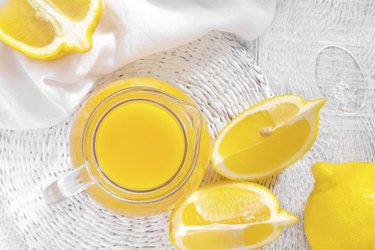
Sandra Zaslow of the North Carolina Cooperative Extension Service explains the use of acids to remove unwanted metals: Lemon juice contains citric acid and can be used to clean metal deposits on glass, crust on pipes and rust stains on porcelain and metal. Making a paste with lemon juice and borax buffers the acid, so the mixture can be left on the metal for several minutes without etching it, and the paste can then be rinsed away.
Copper and Alloys
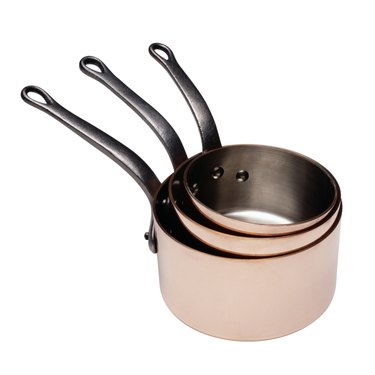
Citric acid also cleans copper. Corrosion also tarnishes copper alloys, including bronze and brass. Texas A & M's Conservation Research Laboratory explains how to clean copper. Copper corrosion forms several blue green compounds with oxygen and chlorine, giving a greenish hue to ancient statues and castings. For example, the Statue of Liberty is exposed to spray from the seawater, giving it a green patina. Copper sulfide also forms, creating a much less attractive black crust. Copper compounds are removed by soaking the tarnished item in low concentration citric acid, mixed with low concentration thiourea, which prevents metal etching.